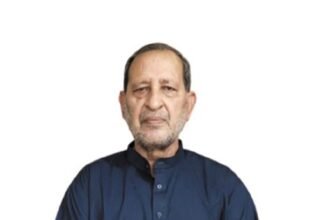**The Seniority Complex**
How Elders’ Obsession with Experience Can Stifle Youthful Innovation
Elders often believe that anyone younger than them is naive, that they alone possess the wisdom of the ages, having emerged as the refined products of life’s experiences. In their view, all intelligence resides solely in their own heads, and the younger generation is here merely to fulfill the oxygen quota.
These seniors suffering from the “elderliness syndrome” will tell you:
*”I’ve got more experience than you’ve been alive.”*
*”You’re still a kid, you haven’t seen the world yet. So, don’t do this, don’t do that.”*
Uncle, sure, you’re older, and maybe you’ve even managed to gather three or four more years of experience than me. You’re the modern-day Ibn Battuta or Marco Polo who has indeed seen the world. You must have faced many challenges in life. But all these traits don’t mean that the person you’re unloading your bundle of experiences on is completely clueless or has a head full of straw. The simple fact is, Uncle, that you’ve already made whatever mark you were going to make in life. Now it’s time to pack up your bundle of experiences and perhaps share them with the youth without imposing your “seniority” on them.
Being older does not give you the right to consider someone younger as inferior and to start pouring your supposed “wisdom” over them. Having too much experience can be a virtue, but it can also be a flaw. An excess of experience creates mental barriers, hindering new ideas and bold steps from taking shape.
Experiences can make a person cautious, even cowardly. Big steps and grand ideas arise more from passion than experience. The energy in youth is precisely because of this—passion prevents mental castration.
I am quite allergic to old people who, while reminiscing about the “good old days,” start narrating the epic tales of their life experiences and try to convince you that you’re still a child, that you don’t understand anything yet. There will always be some elder who hasn’t accomplished much in life but still considers himself no less than Noam Chomsky or Chanakya. The previous generation of elders may have been more genuine, but nowadays, everyone wants to play the role of Baba Ashfaq Ahmed. It’s quite possible that something Baba Ji learned the hard way, today’s tech-savvy youth figured out through a smart approach without facing those same hardships.
I’m not saying don’t respect elders—of course, respect them. But being overly reverent can be dangerous. Our Eastern concept of respect is often quite artificial, and I don’t subscribe to that kind of respect. Respecting someone does not mean agreeing with everything an older person says or refraining from disagreeing just because “Baba Ji might get upset.”
In the subcontinent, respect for elders is often rooted more in economics than in ethics. Here, the joint family system prevails—one person earns while ten others live off that income. The breadwinner ends up supporting idle brothers or sons, which is why his every word is met with “Yes, yes.” Consequently, the one who occupies the seat of authority begins to believe that all wisdom resides within his own mind. His idle sons, whom he himself has spoiled by feeding them for free, all appear to him as fools.
Eastern respect revolves around this core aspect.
Respect your elders, but don’t let yourself be roasted in the furnace of their experiences. Carve your own path, and don’t taint it with a mixture of unsolicited advice.







